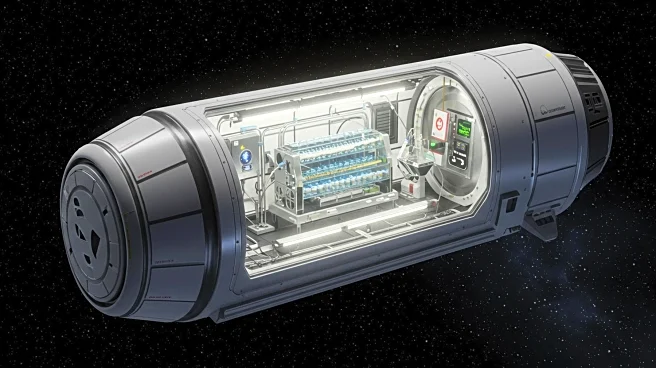What's Happening?
NASA is preparing to launch the 33rd SpaceX commercial resupply services mission from Kennedy Space Center in Florida, targeting the International Space Station. This mission includes a critical investigation into bone health, focusing on how microgravity affects bone-forming and bone-degrading cells. The research aims to prevent bone loss, a common issue for astronauts on long-duration missions, and could also benefit millions suffering from osteoporosis on Earth. The study will utilize mesenchymal stem cells derived from human bone marrow, exploring the role of the IL-6 protein in bone degradation under microgravity conditions.
Why It's Important?
The research is pivotal for future space exploration, particularly missions to the Moon and Mars, where bone health is crucial due to the impossibility of medical evacuation. Understanding and potentially blocking the IL-6 protein's role in bone degradation could lead to treatments that protect astronauts from bone loss. Additionally, the findings may offer new insights into age-related bone loss on Earth, potentially leading to innovative treatments for osteoporosis, impacting millions globally.
What's Next?
The experiment will involve culturing mesenchymal stem cells alongside other bone cells for 19 days aboard the space station. Crew members will periodically collect samples for analysis back on Earth. The results could pave the way for targeted treatments to maintain bone health during extended space missions and improve osteoporosis treatments on Earth.
Beyond the Headlines
This research highlights the dual benefits of space exploration, advancing scientific knowledge for space travel while offering potential health solutions on Earth. The study underscores the importance of understanding biological processes in microgravity, which could lead to breakthroughs in medical science.








